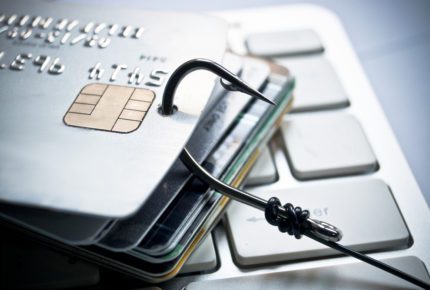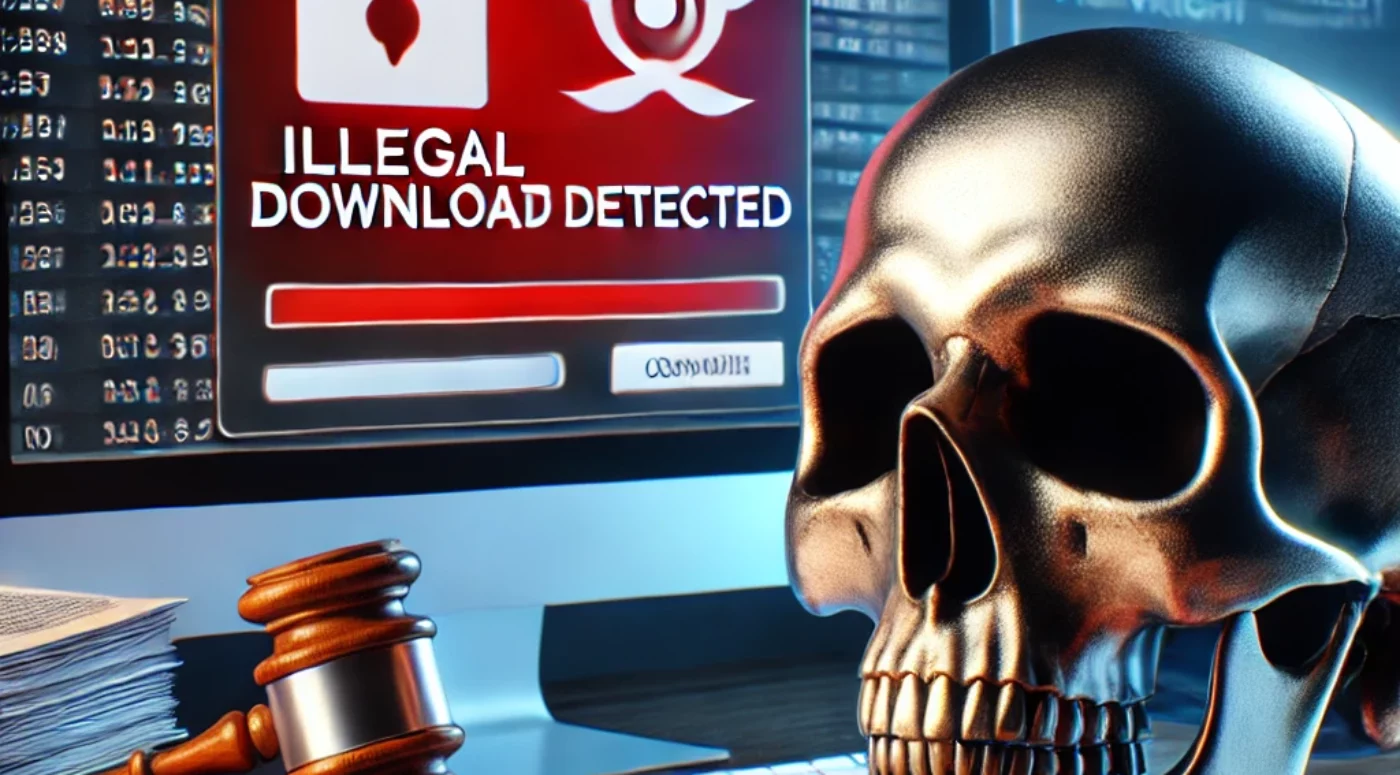

Digital piracy and copyright infringement are very serious offenses, and the criminal justice system in England and Wales views them seriously. If you or someone you care about is facing a charge related to digital piracy and copyright infringement, understanding the potential consequences is important not only because of the legal consequences, but because of potential impacts on personal and professional life matters. Seeking legal advice as early as possible is essential. This article will cover the basics of the offence, i.e. what constitutes digital piracy and copyright infringement, and will discuss the maximum possible sentence you might face. Core parts of the relevant sentencing guidelines will also be examined, and we will explain how a solicitor can help mitigate your sentence, if you are found guilty and sentenced to custody.
What is the offence of digital piracy and copyright?
The offence of digital piracy and copyright infringement in England involves the unauthorised use, reproduction, or distribution of copyrighted material without the permission of the copyright holder. This can include movies, music, software, games, and books.
Several statutes govern the offence of digital piracy and copyright infringement, most notably:
- The Copyright, Designs and Patents Act 1988 (CDPA)
- The Digital Economy Act 2010
- The Police and Justice Act 2006 (which includes provisions relating to computer misuse and copyright infringement)
To secure a conviction for digital piracy and copyright infringement, the prosecution must prove that:
- The infringed material is a copyright-protected work
- The defendant performed an act restricted by copyright law, such as copying, distributing, or making available the copyrighted work to the public without authorisation
- The defendant acted without the permission or consent of the copyright holder
- The act was intentional and not accidental
Examples of digital piracy and copyright infringement include:
- Downloading a movie from a torrent site without purchasing or obtaining a licence
- Sharing copyrighted music files on a peer-to-peer network
- Uploading a copyrighted book to a public file-sharing site
- Distributing cracked versions of commercial software
- Recording and selling pirated copies of a live concert performance
- Streaming a sports event online without proper licensing
- Using copyrighted images on a website without permission
- Selling fake DVDs or Blu-rays of copyrighted films
- Distributing unlicensed video game ROMs
- Engaging in “screen scraping” to republish copyrighted content from a website
What is the maximum sentence for digital piracy and copyright?
Despite how common these activities are, especially in a world that gets more and more ‘virtual’ by the day, digital piracy and copyright infringement are undoubtedly still seen as serious offences under English law.
The maximum sentence for these offences is determined by factors such as the scale of the infringement and the financial impact. Specifically, under the Copyright, Designs and Patents Act 1988:
- For offences involving making or dealing with infringing articles, the maximum penalty is up to 10 years’ imprisonment on indictment.
- For summary convictions, the maximum penalty is six months’ imprisonment or an unlimited fine or both.
Sentencing guidelines from the Sentencing Council take into account various factors such as: the deliberate or calculated nature of the infringement; the scale of the infringement (commercial or non-commercial); and the impact on the copyright owner. Consult a specialised criminal defence solicitor to understand the specific circumstances of your case and the relevant sentencing guidelines.
Beyond criminal penalties, it’s important to be aware of other potential legal consequences, such as:
- Civil Liability: Copyright owners can pursue civil action for damages, which can result in substantial financial penalties. These can include actual damages suffered by the copyright holder and any profits made by the infringer. In some cases, statutory damages may be awarded, which can be significantly higher than actual damages.
- Injunctions and Seizures: Courts may issue injunctions to stop ongoing infringement and order the seizure and destruction of infringing materials. This can include the confiscation of computers and other equipment used in the infringement.
- Reputational Damage: A conviction for copyright infringement can have lasting effects on an individual’s or company’s reputation, potentially impacting future employment or business opportunities.
- Internet Service Restrictions: In some cases, persistent copyright infringers may face restrictions from their Internet Service Providers, potentially limiting their internet access.
- International Consequences: For infringements that cross borders, there may be international legal implications, including extradition requests in severe cases.
- Asset Forfeiture: In cases of large-scale commercial piracy, courts may order the forfeiture of assets obtained through or used in the commission of the offence.
What factors influence the sentencing of digital piracy and copyright?
When sentencing for digital piracy and copyright offences, a judge will take into account several factors to ensure the sentence is fair and proportionate. The main considerations include the following:
- The scale of the offence: This includes the volume of copyrighted material pirated, the degree of organisation, and whether the offender was distributing or merely using the pirated content.
- The financial gain: Whether the offender profited financially from the offence and the extent of any financial losses suffered by the copyright holders.
- Previous convictions: A history of similar offences may result in a harsher sentence, as it suggests a pattern of criminal behaviour.
- Impact on the victim: The harm caused to copyright owners, including loss of revenue and potential reputational damage.
- Degree of planning: The level of sophistication and preparation involved in committing the crime. Well-planned and orchestrated schemes may attract more severe penalties. – The offender’s role: Whether the person was a major player in the distribution network or a minor participant.
- Aggravating factors: These may include the use of sophisticated technology to avoid detection, multiple victims, or a high degree of profit from the offences.
- Mitigating factors: Factors that could reduce the sentence, like evidence of remorse, cooperation with authorities, willingness to make restitution, or if the offence was committed under duress or pressure.
- Early guilty plea: An early admission of guilt can lead to a reduced sentence.
- Personal circumstances: The offender’s personal circumstances, including age, health, and family responsibilities.
Sentencing Council guidance also emphasises the importance of achieving transparency and consistency in sentencing while allowing for judicial discretion to ensure justice in individual cases.
How can a solicitor help with reducing the sentence for digital piracy and copyright?
When facing charges related to digital piracy or copyright infringement, seeking the assistance of a qualified solicitor can be instrumental in the success of your defence. Here’s how a legal professional can help:
- Case Assessment: A solicitor can review the details of your case, including the nature of the alleged infringement, the evidence against you, and any potential defences. They can provide an honest evaluation of your situation and the potential outcomes.
- Legal Expertise: Copyright law and digital piracy regulations can be complex. A solicitor specialising in this area will have in-depth knowledge of relevant laws, recent case precedents, and potential legal strategies.
- Negotiation with Rights Holders: In some cases, a solicitor may be able to negotiate with the copyright holders on your behalf. This could potentially lead to a settlement outside of court, which might result in reduced penalties or charges.
- Mitigation of Penalties: If the case goes to court, a solicitor can present mitigating factors to potentially reduce the severity of the sentence. This might include demonstrating a lack of commercial motivation, showing remorse, or highlighting any steps taken to rectify the situation.
- Challenging Evidence: A skilled solicitor can scrutinise the evidence against you, potentially identifying weaknesses in the prosecution’s case or procedural errors that could work in your favour.
- Explaining Fair Use and Exceptions: In some cases, what appears to be infringement might fall under fair use or other copyright exceptions. A solicitor can help explain these concepts and determine if they apply to your situation.
- Future Compliance Guidance: Beyond handling the immediate legal issues, a solicitor can provide advice on how to ensure future compliance with copyright laws, helping you avoid similar problems in the future.
- Reputation Management: For businesses or individuals where reputation is crucial, a solicitor can advise on strategies to minimise the public relations impact of the case.
Remember, while a solicitor can provide valuable assistance, the best approach is always to respect copyright laws and avoid engaging in digital piracy. If you’re unsure about the legality of your digital activities, consult with a legal professional proactively to ensure compliance.
Where to get more help
At Stuart Miller Solicitors, we pride ourselves on our friendly and non-judgmental approach. We understand that legal issues can arise from various circumstances, and our goal is to provide support and guidance, not to pass judgement. We also understand that concerns about sentencing can be particularly stressful. Our team can provide clear, realistic information about potential sentences based on the specifics of your case and current legal precedents. For more information on digital piracy and copyright offences and sentencing thereof, contact the team at Stuart Miller Solicitors today.
OUR COMMITMENTS TO YOU:
-
Responsive
A legal expert will consult you within 24 hours of making an enquiry.
-
Empathetic
We will always treat you with trust, understanding and respect.
-
Specialised
Your case will be handled by an expert who specialises in your type of offence.
-
Proactive
We will take early action to end proceedings as soon as it is practically and legally possible to do so.
-
Engaged
You will be kept updated on your case at all times. We will provide a named contact available to answer your questions.
-
Caring
We understand this is a difficult and stressful time for you and your family. Our team will support you every step of the way.
-
Tenacious
We will never give up on your case. We fight tirelessly to get you the best possible outcome.

